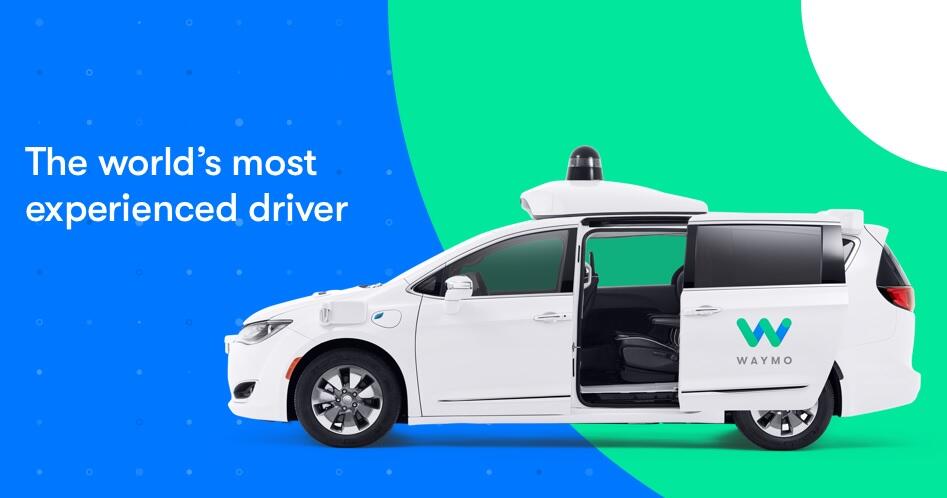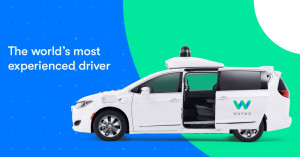Blog: Cracks in Seams of AV-Dreams
Article By : Colin Barnden

Waymo calls its robocar “the World’s Most Experienced Driver.” But implying we aren't good enough drivers is a way to sell us robocars?
On April 1, Alphabet launches Waymom — Building the World’s Most Experienced Parent. From then on new parents won’t even be allowed to raise their kids, because humans are flawed and must be taken out of the loop. Waymom’s neural net is so artificially intelligent that it even named the product and wrote the marketing document:
Developed with big data, machine learning and the assimilation of every parenting manual ever published, Waymom’s Robo-nAInny™ will raise children with 94% superior outcomes compared to a fiftieth-percentile mom. Empathy, connection and meaning can be eradicated with DoD-grade simulation and brute-force learning. Robo-nAInny™ – the journey to perfect citizens.
Before you contact your Congresswoman, or Sundar (Sundar Pichai, Alphabet CEO) gets the lawyers on speed-dial — yes, I did make that up. But this is true: Raising children is really hard and we parent with flaws and imperfections because we ourselves are flawed and imperfect.
Like parenting, driving is also an imperfect task most of us aspire to do well, but that we can’t all be above average at. My wife is more competent than me at both parenting and driving — I have no difficulty accepting that since we view our relationship as a collaboration, not a competition. We figured out our strengths and weaknesses and support each other accordingly.

This leads me to wonder what Waymo is trying to achieve by boasting that it is building the World’s Most Experienced Driver. Just take a few moments to reflect on those words and you’ll see the issue: We all make errors of judgment — both as drivers and as parents — because that is part of the human condition.
Just as my wife doesn’t seek to replace me with a perfect husband, so Waymo — and actually the entire AV tech industry — has strayed naively onto rather dangerous ground. Offering your customers a solution to a problem is standard business practice; but implying that they aren’t good enough or safe enough at something and must be replaced is a pitch I don’t think I’ve seen before.
A Fork in the Road Ahead
We are now witnessing a fracturing of the autonomy dream, with the AV tech industry pursuing an entirely different strategy from the traditional automakers. Let’s look at that idea in more detail:
Left Fork: The AV tech industry is relying on fantasy and magical thinking to portray a future of flawless machine-driven shuttles and robo-taxis. In this tech utopia humans are reduced to cattle in transit — ideally watching ads the whole way. This looks to be the future as envisioned by companies like GM Cruise, Waymo and Zoox, with humans removed from the driving task altogether because they aren’t good enough at it.
We can see from their bravado that the AV tech suppliers are incapable of dealing with the intricacies of subtlety, humility and patience, instead viewing the world from a childlike position of absolutes: Best, biggest, fastest, first, most, winner.
A first-past-the-post-winner-takes-all culture clearly works well developing software for consumer applications like search engines, streaming services and social media apps. However, this mentality has no place whatsoever in the development of systems and software for a mission-critical, functionally-safe environment like automotive, where the product often weighs more than 5,000 lbs, regularly travels at speeds exceeding 50mph and is capable of killing people instantly.
Right Fork: With decades more wisdom and experience to draw on than the tech industry, we are now seeing ever more automakers and their Tier 1 suppliers coming to view the future of driving as a collaboration between humans and machines. Just as in marriage, the two parties have complementary strengths and weaknesses and the optimum outcome is to work together.
For at least the next couple of decades we can expect to see human drivers remain responsible for reasoning — perception, path planning and situational awareness. That leaves the machines responsible for the well-known and well understood deterministic tasks of driver assistance and monitoring — using active safety systems such as autonomous emergency braking, lane-keep assistance and permanently monitoring the driver for distraction and fatigue.
Driver assistance and monitoring technology is tested, validated, affordable, robust, ready, trusted and boring. Precisely what automakers, lawmakers and legislators need to rapidly reduce the number of fatalities on our roads and highways.
Jack Sparrow or Fred Rogers?
Before us there are two competing versions of the future of road safety: The flamboyant AV tech industry with its thrilling promises of flawless machine driving and an accident-free utopia — eventually; and the cautious and dependable automakers with a boring but deliverable strategy of making human drivers safer with technology to assist and monitor. As always in life, it is advisable to choose your beau carefully rather than impulsively.
Driving has much in common with parenting: We all need some help from time to time; no one wants to be told they aren’t any good at it; the way ahead is sometimes unclear; and it is far harder than it looks.
The AV tech industry may well find that navigating the roads paved with gold is trickier than it had assumed, with reliable automakers and human drivers looking set to take it from here. Going into the 2020s, responsible adults are most likely to carry on doing what they have done for millennia — the best they can with what they have.
— Colin Barnden is principal analyst at Semicast Research.